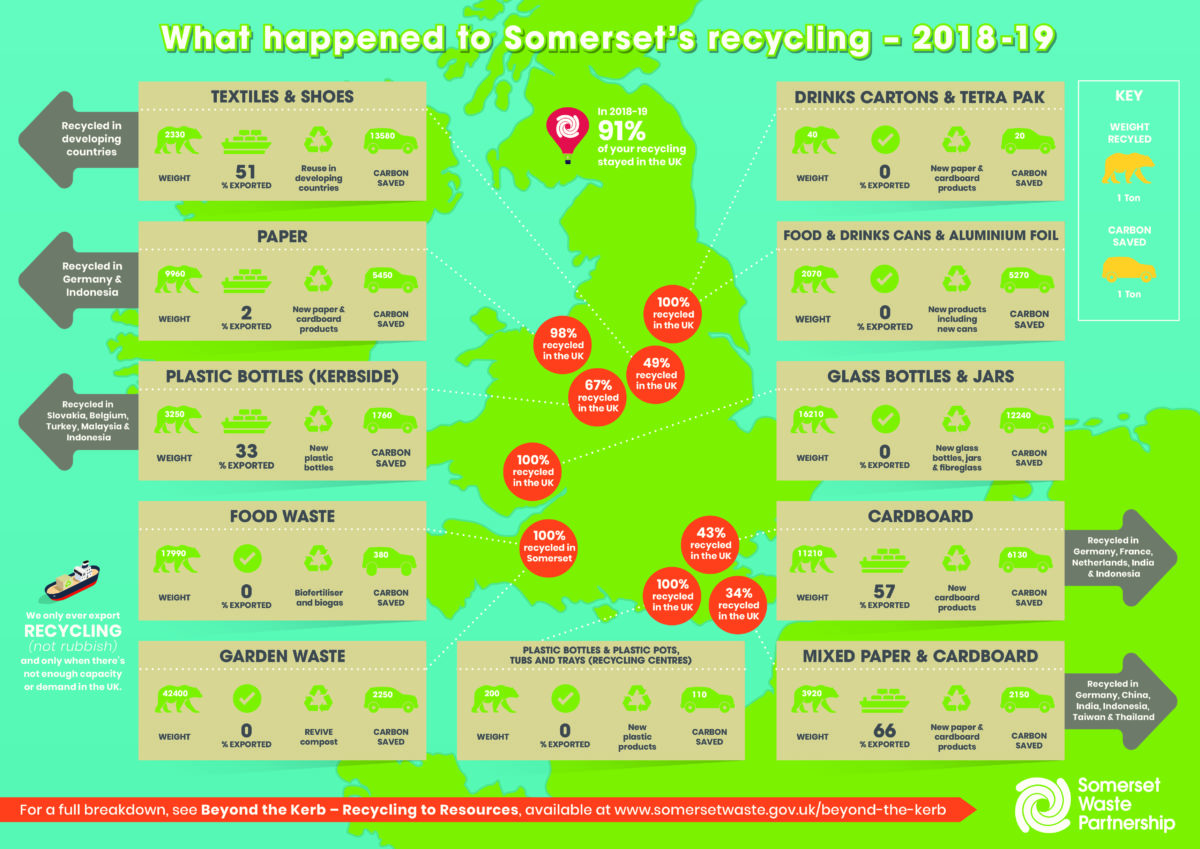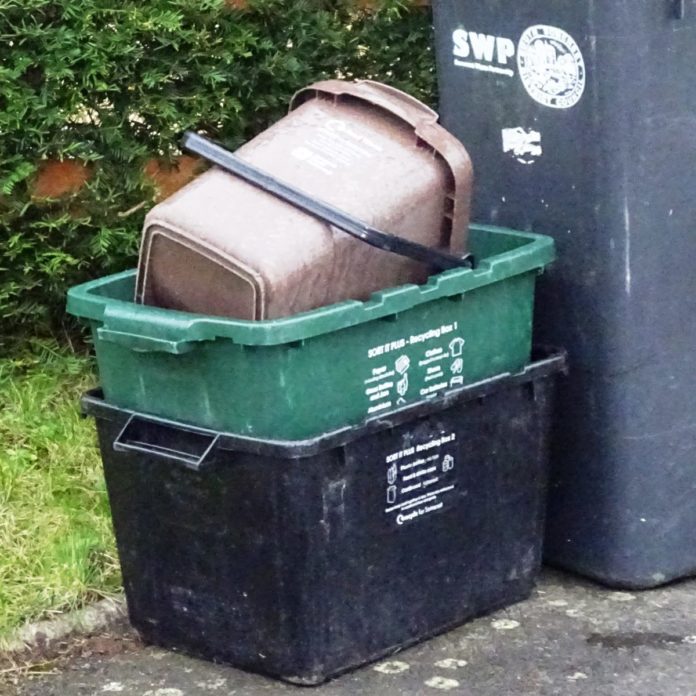A new report reveals how every tonne of recycling in Somerset is contributing to cutting our carbon footprint.
Somerset Waste Partnership (SWP) was the first such group in the UK in 2008 to publish detailed information on what happens to your recycling. Many others have since followed that lead.
For the first time, SWP has turned this information into an infographic – helping to get the message out to more people that sorting your recycling means it is high quality and we can keep it in the UK and maximise our carbon savings.

Thanks to residents and recycling crews separating recycling, over half stays in Somerset and over 90% stays in the UK.
Somerset is independently ranked as the seventh-best area in England for carbon saving, equivalent to taking more than 25,000 cars off the road for a year.
The full “Beyond the Kerb – Recycling to Resources” report tracks the destination of the 133,734 tonnes collected in 2018-19 for recycling and reuse.
That includes everything from cans to clothes, glass bottles to garden waste, with the amounts, locations and companies, and the carbon saved by recycling.
This level of openness and transparency is important to SWP because to tackle climate change, it is important not just how much we recycle, but how we recycle it.
The report shows that more than half of what Somerset recycles stays in Somerset. That includes every bit of the 17,990 tonnes of food waste – which is turned into electricity and farm compost at the county’s anaerobic digestion (AD) plant – and all the 42,400 tonnes of garden waste.
In 2018-19, Somerset did not send abroad for reprocessing a single glass bottle or jar, steel or aluminium can, aerosol, Tetra Pak or other beverage carton, or any of the 172 tonnes of water-based paint going for reuse.
Reprocessed in the UK, most of Somerset’s glass was turned back into new glass bottles and jars – saving over 12,000 tonnes of carbon.
The millions of plastic pots, tubs and trays now being taken at every recycling site also stayed in the UK. They were turned into the raw materials for new products and packaging in plants across the country from Kent to Yorkshire, Wales to Manchester.
Due to the lack of UK reprocessing capacity or demand, SWP’s collection and recycling site contractors send a proportion of some materials overseas.
Every tonne is carefully tracked to the location and company as part of the Beyond the Kerb recycling register.
In all, what goes abroad for reprocessing is just 9% of Somerset’s recycling. For example, to meet demand in Africa and elsewhere in the developing world, just over half of Somerset’s recycled textiles, clothes and shoes went overseas for sale and reuse.
The only plastics exported were a third of the plastic bottles from kerbside collections – the most valuable plastics for reprocessing so too good to be dumped – that went to legitimate and trusted companies in Belgium, Indonesia, Malaysia, Slovakia and Turkey to be turned into more plastic bottles and packaging.
A Somerset Waste Partnership spokesman said: “We’re proud of what we achieved and take care to track every tonne of recycling, but we want to do even better in the future.”
“As new recycling capacity comes on line in the UK – including the country’s largest plastics plant in Avonmouth, powered by burning Somerset’s rubbish – even more can be achieved.”
“If there is enough UK capacity and demand, then from Spring 2020 we won’t export anything we collect at the kerbside.”
For the full report, click here.







